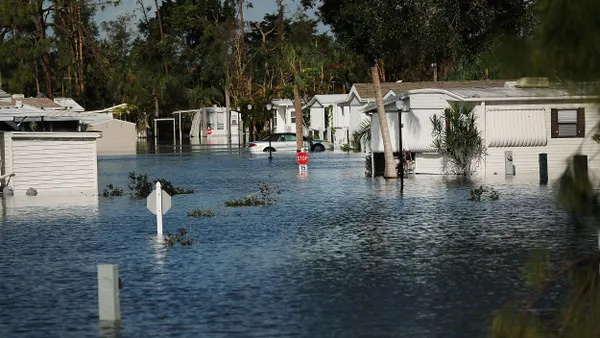UPDATED, March 21, 2019: This week in a LinkedIn post, Mastercard's head of global cities Miguel Gamiño announced it has welcomed seven new members to its City Possible initiative: Buenos Aires, Argentina; Guarulhos, Brazil; Belfast, Northern Ireland; Austin, TX; Erie, PA; San Jose, CA, and Wichita, KS.
"What unites this tribe of urban leaders is a fundamental belief in the superpower of collaboration: the opportunity for cities to build on each other’s progress," Gamiño wrote in the post. "Whether you like or dis-like the 'smart city' moniker, I believe there is one thing we can all agree on: For thousands of years, communities have progressed by embracing diverse ideas and people from other places."
Dive Brief:
- Mastercard has announced the first 16 cities for its City Possible initiative, which it launched late last year. The initiative is intended to bring together global entities to find innovative approaches to city's problems.
- The chosen cities are: Altamonte Springs, FL; Athens, Greece; Aurora, IL; Baltimore; Dubai, United Arab Emirate; Dublin, Republic of Ireland; Helsinki, Finland; Honolulu; Kansas City, MO; Melbourne, Australia; Prague; San Diego; as well as the Sydney, Australia-area communities of Campbelltown, Canterbury Bankstown, Liverpool and Wollondilly. Additional cities will be able to join the network.
- Once the network identifies key challenges that cities around the world share, City Possible will provide a framework for co-creating, testing and scaling solutions through a public-private partnership (P3) model. Previous Mastercard smart city collaborations involved addressing traffic congestion and transit fare collection.
Dive Insight:
Mastercard has been trying to position itself as a leading smart cities partner that helps to foster innovation and solutions for cities around the world. Its transit solutions arm recently announced that it had helped to expand tap-and-go and touchless transit fare payment technology to 150 cities.
A significant part of the City Possible initiative is a partnership with the Technology and Entrepreneurship Center at Harvard University (TECH) that will host programs to foster learning exchanges among global city leaders. The first of these focuses on urban planning, data insight and mobility services. "Through our learning exchanges, we want to equip CIOs and other urban leaders to better navigate this dynamic environment," Prof. David S. Ricketts, fellow at TECH, said in a statement.
The private sector tends to lead the public sector in the technology space so it makes sense for cities to rely on a P3 model to implement innovative solutions. The City Possible initiative aims to bring together a variety of private companies and municipal leaders to devise sustainable solutions that could help a variety of cities create a better quality of life for their residents.











